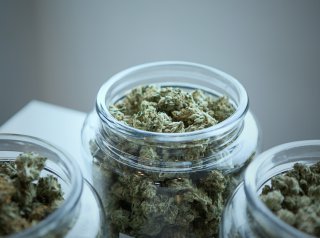Over the years, weed users have proven that marijuana withdrawal is indeed real. A lot has testified that they have experienced withdrawal symptoms, though most of the time they are mild. Symptoms may include headache, stomach ache, physical discomfort, sleeping difficulty, tremors, etc. The severity experienced can also depend on the person and on how long it has been since the last time he had used weed.

Marijuana can be as addictive as alcohol and detoxification can take a lot of courage and effort. The process is going to be hard, it will be painful (psychologically) and most of the time, people just choose to give up because that is easier.
But there are things you can do to help you get through that extremely difficult task you are facing. Some of these are simple and you can accomplish them by yourself at home. If they don’t work anymore, never be ashamed to seek and ask for professional help.
Page Content
Home Remedies
The following treatments were found to help make the symptoms bearable.
Drink plenty of liquids especially water. This helps in the fast removal of the marijuana substance from the body. Cranberry juice is also effective in helping cleanse and purify the body.
Reduce or better yet eliminate caffeine from your daily intake. But don’t you worry, that’s only temporary. Just until you have a normal sleeping pattern. A classic way of fighting insomnia is to drink a glass of milk just before hitting the sack.

Remove fat from your diet. This will help you digest food better and avoid constipation.
Warm shower and bath can help you get your emotions as well as your body under control.
Exercise can be an anti-depressant (just make sure you exercise for at least 20 minutes). It also helps speed up the body’s healing process.
Behavioral Treatments
Like it or not, giving up from detoxifying is always an option. When the symptoms become too hard to manage that you feel like you can’t take it anymore, the following therapies can help you get back on track.
Motivational Enhancement Therapy. As what its name suggests, this type of therapy motivates an individual to change. This also helps lessen the resistance a person may have in abstaining from taking marijuana.
Cognitive Behavioral Therapy. This therapy teaches ways of how to avoid or manage problems that they may face that might stop them from recovering. In this treatment, they also teach people skills that will help them stop using the drug.
Contingency Management. This is like a reward system. They give marijuana users vouchers of increasing value as a prize for testing negative on drugs repeatedly over time.
Peer Groups
When you feel like there are people behind your back supporting you and believe that you can get out of what you are going through triumphantly, it would seem like the challenge you are facing becomes easier. Maybe this is why support groups for recovering users are very famous. The testimonial from those who survived what you are still experiencing can motivate you that you can also overcome marijuana withdrawal symptoms.

Medication
Medicines are effective for treating marijuana-use related disorders are yet to be discovered. In the meantime, antidepressant drugs like Serzone and Prozac are used to help individuals manage to overcome marijuana withdrawal symptoms and avoid relapse.





